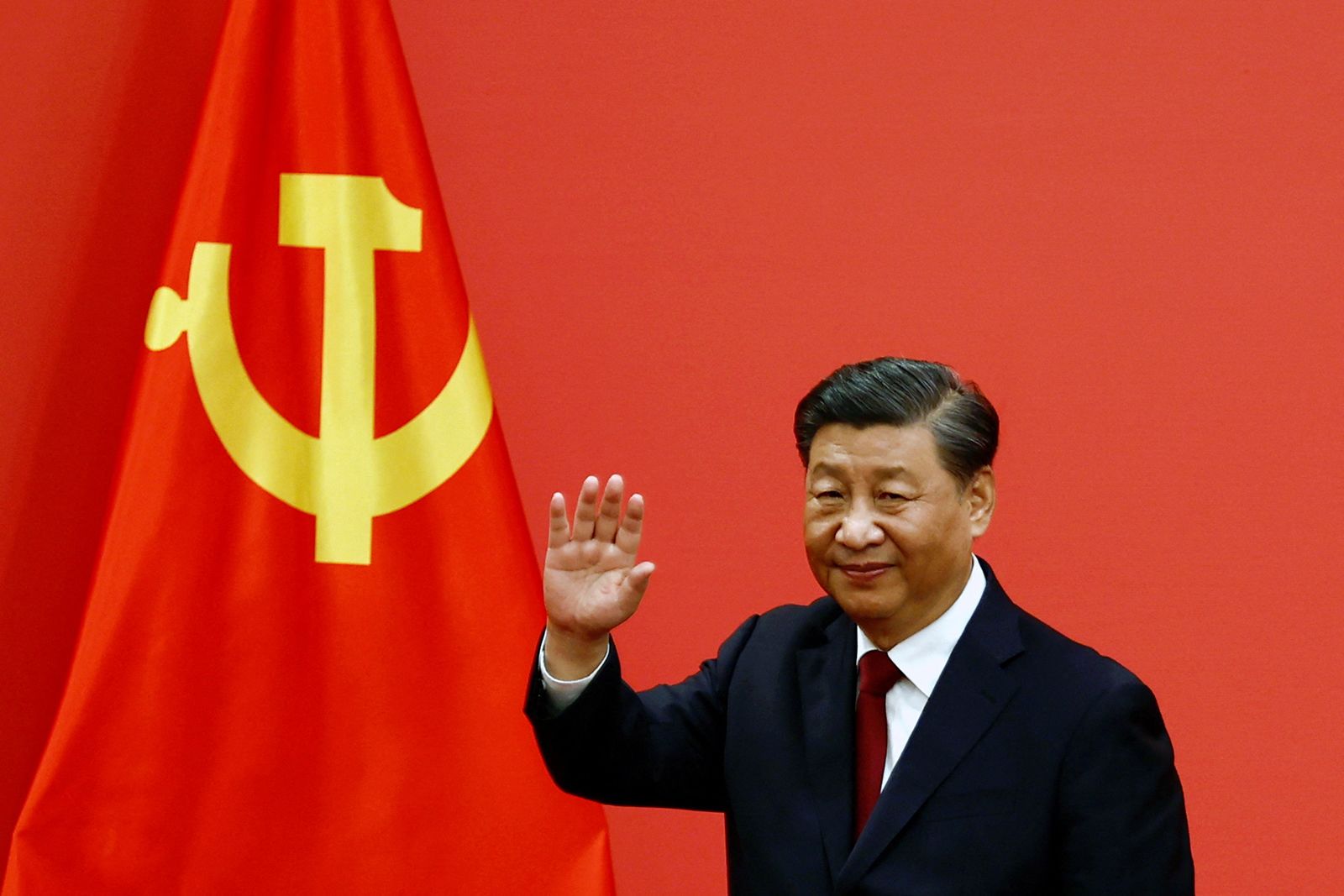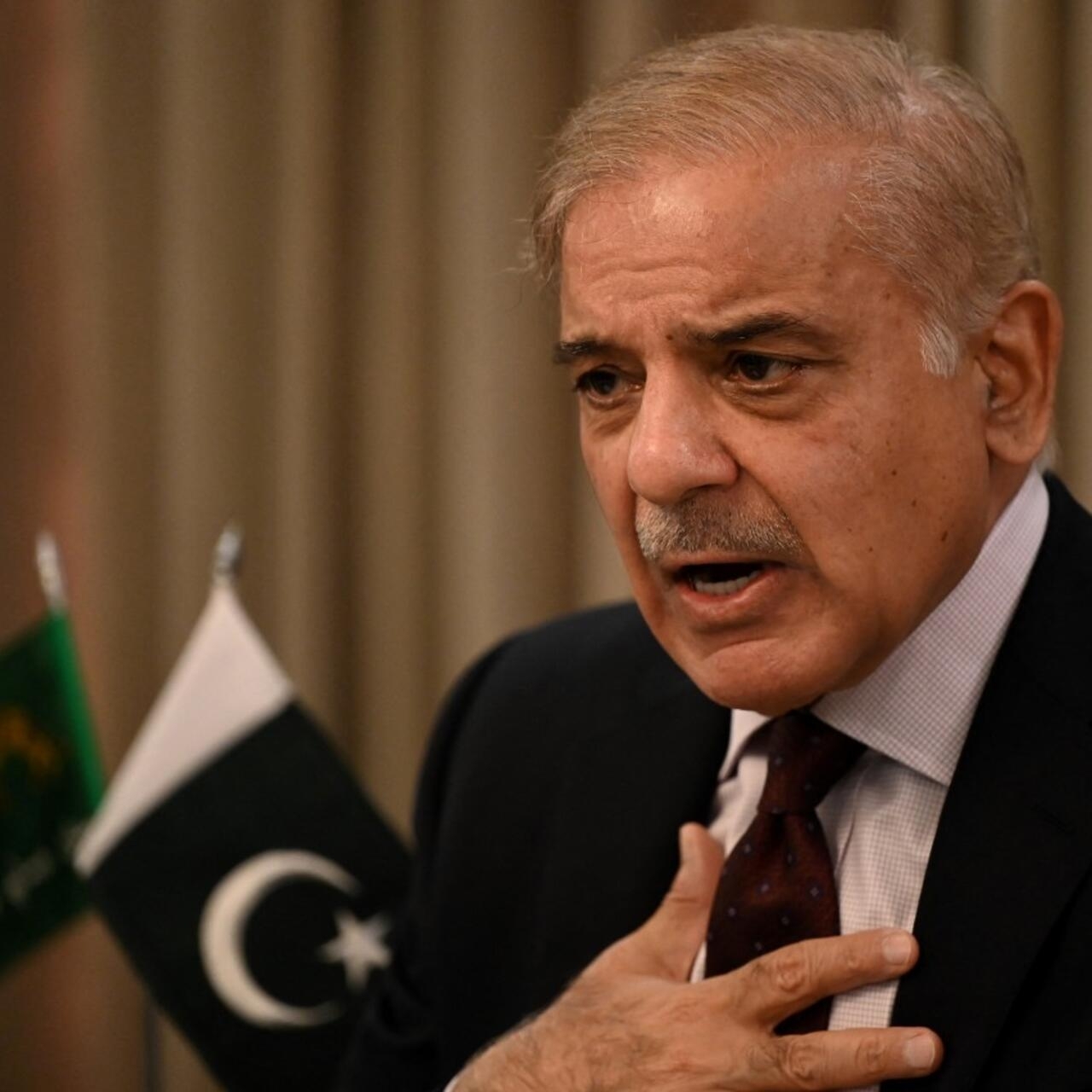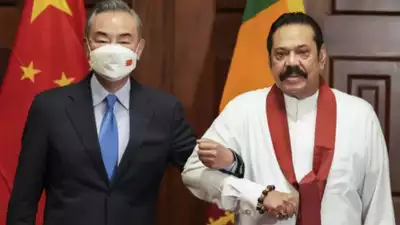World
China’s strategy to destabilise Taiwan decoded

Taiwanese officials have discovered a vast plan by China to demolish Taiwan’s defences and undermine the island nation’s democracy and sovereignty after a lengthy investigation. According to a thorough report published by Reuters, China established a surveillance network including Taiwanese military officers and enticed them with lavish presents and monetary awards.
Starting in 2006, one of the Chinese spy recruiters, a guy named Xie Xizhang, who claimed to be a Hong Kong businessman, saw a Taiwanese naval officer named Chang Pei-ning several times. Xie attracted several commanders in Taiwan’s military over the years, paying them with international trips, high-end gifts, and thousands of dollars in cash.
According to a report, Taiwanese officials launched an investigation into Xie’s espionage network in 2019, searching multiple places and making arrests. Xie has subsequently returned to China. According to Reuters’ access to detailed investigative reports, China has systematically developed a spy network to damage Taiwan’s defence capabilities, diminish its strength, and gain full information of its strategic weaponry and plans.
According to the study, China’s surveillance network was so powerful that even Taiwanese President Tsai Ing-security wen’s detail was penetrated. A Taiwanese court sentenced a retired presidential security officer and a serving Lt Col ranking officer earlier this year for their roles in disclosing the president’s security details to Chinese spies.
According to the court, they allegedly provided Chinese intelligence officials with charts, sketches, phone numbers for the president’s security team, and information about the president’s residence.
According to Reuters, 21 officers have been convicted in Taiwan thus far, with 9 more on trial. The potential of open conflict between China and Taiwan is always high, and in such a circumstance, Taiwanese military troops on China’s payroll seriously jeopardise the security of the small island nation. President Xi Jinping of China has made it clear in recent months that he will not be persuaded from his goal.
The People’s Republic of China believes Taiwan to be its own territory, and it seeks to reclaim it.
‘The People’s Republic of China has infiltrated practically every military rank in Taiwan.’
PRC has infiltrated practically all ranks and levels of the Taiwanese military, including top-level generals, according to a retired Taiwanese Lt Commander Lu Li-shih. According to the officer, Chinese intelligence approaches the targeted officers with costly gifts and lunches, as well as a lucrative reward for information. They begin blackmailing the dishonest officers for more information with lesser payments after the first few exchanges.
A retired major general and three retired colonels are among those charged with spying. Even Taiwan’s former deputy defence minister was questioned in July as part of a national security investigation.
Xie Xezhang, who pretended to be a Hong Kong-based entrepreneur to Taiwan military officials, actually works for a PRC intelligence bureau that acts as a front for China’s Central Military Commission. The commission is led by Chinese President Xi Jinping, according to the Reuters article.
China has a history of employing spying networks to target Taiwan.
The Chinese civil war and confrontations between Mao Zedong’s forces and the KMT party’s nationalist forces under Chiang Kai-shek resulted in the formation of Taiwan as a separate nation. China’s communist forces have been known to persuade entire KMT factions to join them.
According to Reuters, despite China’s huge military power and Taiwan’s comparatively modest forces, China will find it impossible to capture the island by force. Even without the intervention of international troops, Taiwanese forces may inflict huge losses on China due to their military prowess, geographical advantage, and proximity to the sea.
Things may be much easier for the communist force if Chinese spies within Taiwan’s military ranks assist the PRC by revealing codes, weapon data, positions, and strategic manoeuvres. Taiwan’s defence ministry indicated in a September report that if a direct conflict arises, Chinese spies inside Taiwanese territory may execute ‘decapitation’ strikes against Taiwanese forces, killing top-level commanding commanders.
Apart from immediate strategic implications, the discovery of Chinese spies among the ranks, according to the report, also helps to psychologically undermine the military ranks by spreading seeds of doubt and distrust. Some security specialists are concerned that examples of spies within Taiwanese troops may raise suspicions among allies such as the United States, leading to a situation in which the US will be unable to provide critical information with Taiwanese soldiers.
Despite Taiwan’s Counterintelligence and Security Division’s best efforts, China has successfully established a spy network among Taiwanese forces. The Taiwanese military conducts education campaigns, develops programmes, and even airs soap operas to warn troops about Chinese designs, but all of these measures have failed.
Despite the fact that Taiwanese officials are unwilling to discuss current investigations or publicly admit spying cases, former officers and security professionals in the country are concerned that the negative effects of Chinese spying inside Taiwanese forces could put the island nation’s security at risk.
Taiwanese ex-military personnel pay a visit to China.
The arrest of Taiwanese spies is frequently reported in China’s state-run media. According to the article, China is also courting old-school politicians in Taiwan who are members of the opposition and criticise the current system. Though a majority of Taiwanese natives of the younger age favour President Tsai’s DPP, the opposition KMT was founded in China, and some of the old guards still hope for a democratic reunification with China.
A large percentage of former military officials favour the KMT and the idea of reunification as well. Over 30 retired Taiwanese generals were observed attending Xi Jinping’s speech at a government function aired by China in November 2016. They had raised their hands in support of the Chinese national anthem. In Taiwan, the incident sparked widespread indignation.
Eventually, the Taiwanese government developed a rule prohibiting retired military officers from visiting China. If Taiwanese ex-military officers are caught saluting Chinese communist party symbols or insignia, they face heavy fines and the loss of their pension payments. Taiwan has enacted legislation over the years to impose harsh penalties and sentences on retired military members found guilty of spying for China.
World
Censors in China publish an open letter opposing Xi

A day after the message went viral for criticising Beijing’s relentless COVID-19 policy, China has banned a public post on its all-encompassing platform WeChat. The “10 Questions” article revealed escalating discontent among the Chinese people with government policy.
The open letter, which was posted on the app on Tuesday, has gotten over 100,000 views. Additionally, according to Newsweek, many of the Author’s opinions appeared to be shared by other users and looked to be motivated by feelings of loneliness in contrast to the happy images at the FIFA World Cup being held in Qatar.
China is battling to eradicate communal transmission
Nearly three years into the epidemic, China is still the sole large economy battling to eradicate every incidence of community transmission of the coronavirus. In an apparent trade-off for social stability, President Xi Jinping’s “Dynamic zero COVID” public health plan is apparently severely straining the economy and the livelihoods of Chinese residents.
Wednesday saw 31,444 new illnesses registered nationwide by China’s National Health Commission, a number that is modest by worldwide standards but represents a record high for the Chinese government. Serious cases are still uncommon, and deaths are much less common—only one fatality was reported in the same 24-hour period.
In key Chinese cities, including the capital Beijing, new field hospitals and sizable centralised quarantine facilities are still being built, according to the Newsweek story. A quarter of China’s 1.4 billion people are currently residing under some sort of lockdown.
According to reports, a “normal person” questioned the amount of state resources allocated to documenting COVID instances as opposed to promoting the effectiveness of medicines in the viral WeChat post. The author also expressed worry over China’s refusal to permit Hong Kong to reopen in September in spite of objections from the senior population of the area.
Chinese unrest being fueled by the FIFA World Cup?
Although Chinese national team hasn’t participated in the competition in 20 years, and in this case, they also missed out on world cup qualification. It last achieved qualification in 2002 at the edition of the competition jointly hosted by Japan and South Korea. Furthermore, the tournament’s start on Sunday seemed to hit a chord with the disgruntled Chinese citizens as Weibo users juxtaposed images of Qatari soccer fans rejoicing with Chinese health workers donning hazmat suits. Russia’s senior envoy to Beijing stated this week that President Xi Jinping would travel there in 2023.
World
By 2040, Bangladesh’s GDP is on course to reach one trillion dollars

According to Boston Consulting Group, Bangladesh is on track to have a $1 trillion economy by 2040 because to consumer confidence, innovation in growing economic sectors, and a youthful, motivated workforce.
According to a BCG analysis issued on Friday, the South Asian country has beaten rivals including India, Indonesia, Vietnam, the Philippines, and Thailand with average annual growth of 6.4% between 2016 and 2021.
The domestic consumer market in Bangladesh is expected to grow to be the ninth-largest in the world.
The survey also said that between 2020 and 2025, a quickly growing middle class and wealthy class are expected to increase significantly, with a thriving gig economy supporting a workforce where the median age is just 28.
According to BCG, “the nation could have easily been eclipsed by its neighbour to the northeast, China, or its continental relative to the west, India, yet Bangladesh stands strong in this area of economic powerhouses.”
In 2015, Bangladesh moved up the income scale from poor to lower-middle income. Bangladesh’s GDP per capita is already larger than its neighbour, even though it is five years later than India. By 2031, the country hopes to reach upper middle income status.
Problems still exist. According to BCG, current liquidity concerns, foreign exchange volatility, and inflationary pressures might temporarily limit GDP. However, Bangladesh has made steps to set up its $416 billion economy for a prosperous few decades, provided it keeps its annual growth rate around 5%.
57% of respondents to a BCG study “continue to feel that the next generation would have better lifestyles than themselves, especially as the country moves to a skill-based economy,” according to the analysis of the survey results.
Although the economy is expected to see some near-term turbulence, the research stated that it is certain that this highly resilient economy will continue to exhibit solid growth over the long run.
World
Prime Minister Shahbaz Sharif chooses Asim Munir in Pakistan

Lieutenant General Asim Munir, a former head of the ISI, has been chosen by Prime Minister Shahbaz Sharif to lead Pakistan’s army. General Qamar Jawed Bajwa, the current commander, will step down on November 29 after obtaining a three-year extension. The Joint Chiefs of Staff Committee’s chairman has also been chosen, Lt. Gen. Sahir Shamshad Mirza (CJCSC).
The announcement was made on Twitter by Marriyum Aurangzeb, minister of information. “Using constitutional power, Pakistan’s Prime Minister, Muhammad Shehbaz Sharif, has decided to propose Lt. Gen. Sahir Shamshad Mirza as Chairman of the Joint Chiefs of Staff and Lt. Gen. Syed Asim Munir as Chief of the Army Staff,” said Aurangzeb on Twitter. The President of Pakistan has received an overview of this.
Minutes after the news broke, Defense Minister Khawaja Asif assured the media that the situation had been handled in line with the law and the Constitution. He emphasised that in order to prevent a “controversy,” president Arif Alvi should take the premier’s advice. He expressed the hope that President Arif Alvi will support the recommendations of the administration and refrain from making the selections “controversial.”
After getting a summary, President Arif Alvi would talk about the situation with former Prime Minister Imran Khan, according to Khawaja Asif. President Alvi is a founder member of Pakistan Tehreek-i-Insaf, Imran Khan’s political party (PTI). The present administration worries that he would not agree with the choice of the new army chief.
President Arif Alvi, according to Imran Khan, would contact him before appointing a new army commander. The president will “absolutely” discuss the position with him, he had earlier stated. “I and the president of Pakistan will act in accordance with the Constitution and laws when the moment comes,” he declared.
Asim Munir, who is he?
The Inter-Services Intelligence (ISI) was led by Lt Gen Asim Munir when tensions between India and Pakistan reached their zenith in February 2019. A gathering organised by Imran Khan has been scheduled for November 26 in Rawalpindi, two days before General Bajwa hands the reins over to the next Army head. When tensions between India and Pakistan reached their peak following the Pulwama terror attack in February 2019, which resulted in the deaths of 40 CRPF members, he served as the director of the Inter-Services Intelligence (ISI).
-

 India3 years ago
India3 years agoAs the arrangement with Prashant Kishor falls through Rahul Gandhi has gone overseas again and is uncontactable
-

 Fact Check4 years ago
Fact Check4 years agoNidhi Razdan, fake Harvard professorship, and here is the explanation through her blog.
-

 Latest News3 years ago
Latest News3 years agoTata wins Air India with ₹18,000 crore bid
-

 Technology3 years ago
Technology3 years agoBSNL reveals all new 4G plans starting at ₹16
-

 Latest News4 years ago
Latest News4 years agoGovernment has spent ₹9,725 crores on Covid-19 vaccination drive so far
-

 Latest News3 years ago
Latest News3 years agoJharkhand government cuts Petrol price by massive ₹25 a litre but with a catch
-

 Navi Mumbai4 years ago
Navi Mumbai4 years agoNavi Mumbai civic body raids and tests morning walkers, many found COVID positive
-

 Latest News4 years ago
Latest News4 years agoRaj Kundra Gave ₹25 Lakh Bribe to Mumbai Crime Branch to Avoid Arrest
















